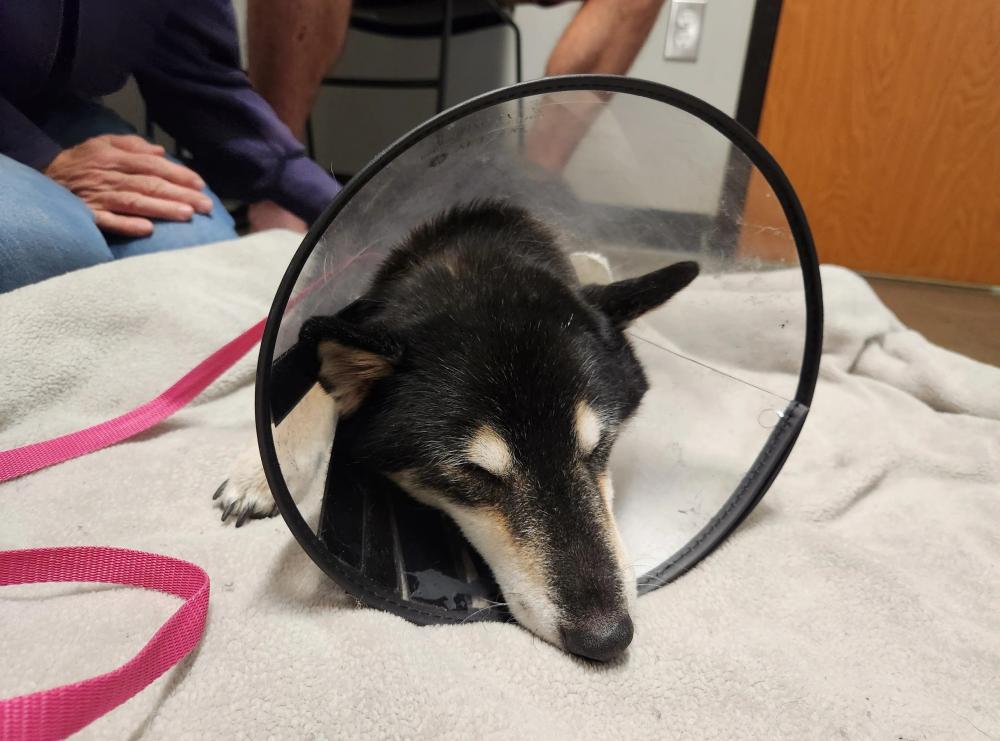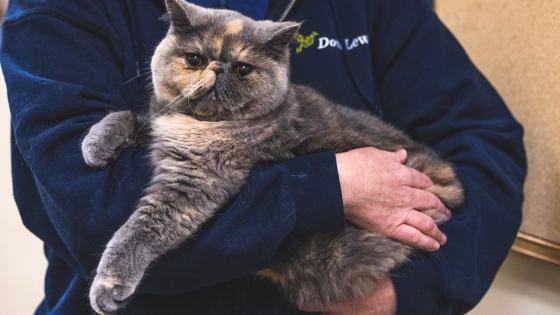Rat Poison and Pets Don’t Mix: Kitsune’s Lifesaving Lesson
It was 2 a.m. when Kitsune’s family rushed through the doors of DoveLewis, hearts pounding and hands shaking. Their 8-year-old dog had just eaten a type of rat poison that can be deadly even in small amounts.
A Frightening Diagnosis
We quickly identified the poison as bromethalin, one of the most dangerous types of rodenticides. Unlike others that cause internal bleeding, bromethalin affects the brain and spinal cord, leading to brain swelling, seizures, and paralysis. Even tiny doses can be fatal, and symptoms can take one to five days to appear—long after the damage has begun.
Because of that delay, every minute matters. “They were not only honest about how serious it was and what our chances were of her survival (not high), but so kind/gentle and quick with her treatments.” Kitsune’s family later wrote in a Google review.
Intensive Care and a Fighting Spirit
 Kitsune was immediately treated to remove and block as much of the toxin as possible. Our team induced vomiting, administered multiple doses of activated charcoal (which acts like a sponge to bind toxins), and used additional methods to help flush out any remaining poison from her system. She also received IV fluids to keep her hydrated and support her recovery.
Kitsune was immediately treated to remove and block as much of the toxin as possible. Our team induced vomiting, administered multiple doses of activated charcoal (which acts like a sponge to bind toxins), and used additional methods to help flush out any remaining poison from her system. She also received IV fluids to keep her hydrated and support her recovery.
It wasn’t easy—Kitsune is famously not a fan of the vet—but her care team worked patiently and gently. They sedated her as needed, balancing comfort with close monitoring of her neurological status. Over two days in the DoveLewis ICU, she remained under round-the-clock watch. Her family visited her often, offering reassurance between treatments.
“They took amazing care of her,” her family wrote. "Despite her being incredibly difficult and hating the vet with a burning passion. Because of our luck, her grit, and their diligent care, she has miraculously (and I mean against-all-odds miraculously) survived the first 48 hours.”
Back Home and Healing
After two anxious days, Kitsune was finally stable enough to go home. Her family continued to monitor her closely for several weeks, as bromethalin can cause delayed neurological effects. Thankfully, she healed beautifully.
A month later, her family shared an updated Google review:
“Kitsune is alive a month later and miraculously back to her normal self! Can’t believe our fortune!! Thank you so much to the folks at DoveLewis ❤️”
A Warning for Pet Parents
Kitsune’s story is an important reminder of how dangerous—and common—rat poison ingestion can be. Bromethalin and other rodenticides are found in garages, sheds, and under sinks, and many pets are drawn to the smell or taste of the bait.
If you suspect your pet has eaten rat poison:
- Call for help and get care immediately. Don’t wait for symptoms. Contact your veterinarian, DoveLewis, or the ASPCA Animal Poison Control Center at (888) 426-4435.
- Save the packaging if you can. The specific ingredient is essential for your veterinary team to determine the right treatment.
- Store all poisons securely. Pets are curious and can reach surprising places—including behind furniture, in closets, or under appliances.
Kitsune’s fight wouldn’t have been possible without her family’s vigilance and the careful attention of our team. She’s back to her bright, mischievous self—and her story is a reminder to all pet owners to be vigilant about household toxins.



